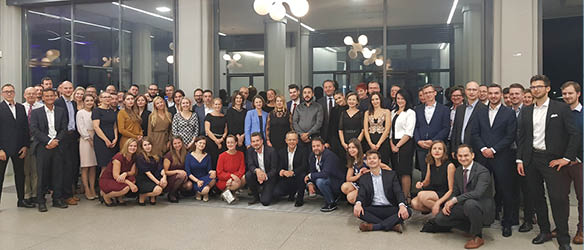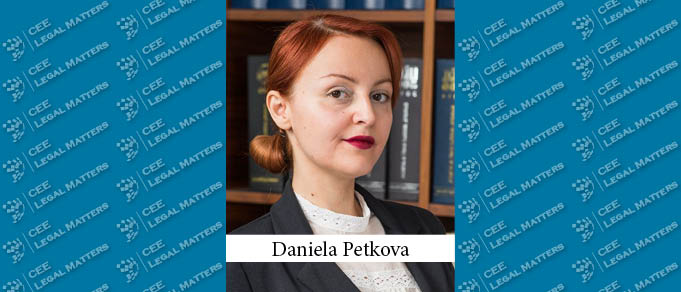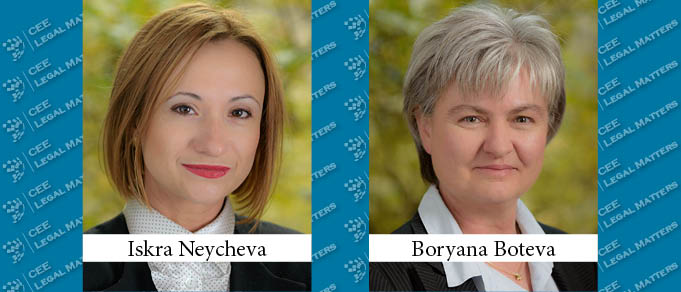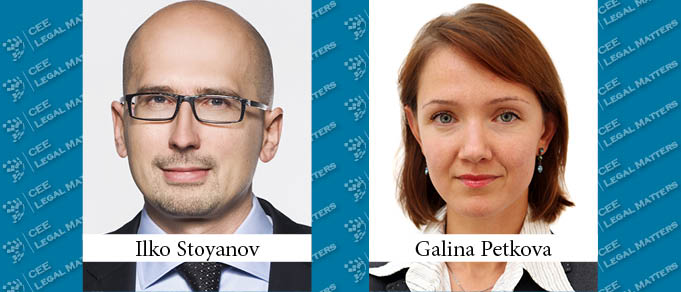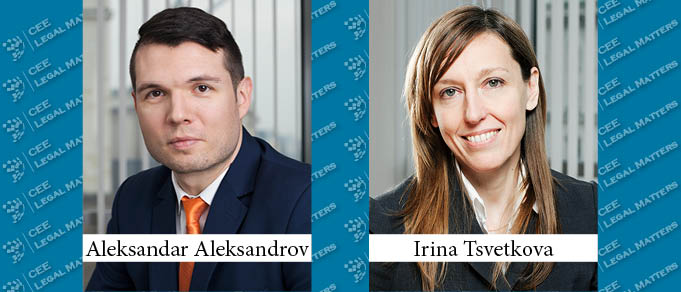While the Bulgarian political landscape is not exactly what Peterka Partners Partner Plamen Peev would describe as stable, there seems to be notable movement in terms of legislative updates as well as reasons for cautious optimism related to the Bulgarian economy.
Foreign Direct Investment in Central Europe: Bulgaria
The global pandemic has impacted all markets, with subsequent ramifications for M&A. Investors are now seeking greater protection against general lock-downs and supply-chain disruptions, while governments aim to protect critical supplies and services by imposing new regulations on foreign investment in crucial or strategic industries.
Cybersecurity and Law – Inextricably Linked
Short overview of the importance of the applicable legislation and the need of adequate business reaction in the EU
The Pontes Perspective on CEE
The COVID-19 crisis continues to plague much of Europe. To get an overview of its effects across CEE – both on investment in the region and on the legal industry itself – we reached out to the members of Pontes the CEE Lawyers legal alliance, a Regional Sponsor at the upcoming Dealer’s Choice International Law Firm Summit.
Bulgaria: Tendencies Observed in the Last 12 Months and Expectations for 2021
Unsurprisingly, 2020 saw a reduction in the A-listers on the Bulgarian real estate market, including investors in office, retail, and hospitality properties. The lockdown sent IT companies, which had been dictating the local office space market, into home office. The future of commercial and entertainment properties like shopping malls, cinemas, concert venues, and sports arenas remains uncertain – but tourism remains the hardest hit.
The Future of Finance in CEE: How 2020 Changed the Market and What to Expect in 2021
As last year’s upheavals continue to influence finance markets in 2021, Erika Papp, CMS’s Head of Finance CEE/CIS, and CMS’s Regional Finance Partners Paul Stallebrass in Prague, Ana Radnev in Bucharest, and Elitsa Ivanova in Sofia offer their perspectives on what this year might hold for financing in CEE.
An Unusual Year in Review: Our Annual Expert Round Table
On December 15, 2020 CEELM gathered legal experts from across the region for its annual Year-in-Review Round Table conversation. In a wide-ranging discussion, participants shared opinions and perspectives on their markets, on strong (and less-strong) practices across the region, and the effect of the COVID-19 crisis on both, as well as on how technology is changing the legal industry, and what the industry will look like in 2021.
Bulgaria’s M&A Market – The Calm Before the Storm or Simply the “New Normal?”
It has been a challenging year for the Bulgarian M&A market, with limited activity, just like in 2019. Undoubtedly, one of the reasons for the slowdown is that business is overshadowed by the coronavirus pandemic. Many acquirers abandoned expansion plans in order to focus on protecting both their financial stability and their employees, while waiting to assess the market environment and evaluate potential next steps. Many planned or already-started deals were cancelled at early stages (such as following a letter of intent or during preliminary due diligence) as uncertainty about the fulfilment of potential goals made the transactions risky.
The Chinese Belt and Road Initiative: Infrastructure Opportunities in CEE
The Chinese Belt and Road Initiative is one of the most ambitious development projects since the turn of the century. Through thousands of individual projects implemented under the BRI umbrella, China intends to develop land and sea corridors to support economic trade and development, integrate various regions of the world, and facilitate policy coordination, connectivity, unimpeded trade, financial services, and the connection of people. The BRI was launched in 2013, and last year was revamped with a new set of objectives.
Bulgaria: Recommended Benchmark Replacement Clauses for Credit Agreements with Bulgarian Borrowers
Since the cessation of the widely-used LIBOR benchmark has become a realistic prospect, due to the UK Financial Conduct Authority’s announcements that it will stop supporting this benchmark at the end of 2021, the question of what will take its place has become a hot topic for lenders and lawyers drafting credit agreements.
The Corner Office: Most Meaningful Charity or Pro Bono Commitment
In The Corner Office we ask Managing Partners across Central and Eastern Europe about their unique roles and responsibilities. The question this time: “What one ongoing pro bono initiative or project or charity/volunteering project that your firm is involved with has the most meaning for you personally, and why?”
Application of Transfer Pricing Regulations in Bulgaria
The amendments to the Bulgarian Tax and Social Security Procedure Code in August 2019 relating to mandatory transfer pricing (TP) documentation came into effect on January 1, 2020. Thus 2020 is the first year for which TP documentation, including a local file and a master file, should be prepared.
Inside Insight: Interview with Alice Radu, General Legal Counsel for Romania & Bulgaria at Bosch Group Romania
An interview with Alice Radu, General Legal Counsel for Romania & Bulgaria at Bosch Group Romania about her background and best practices.
Inside Out: Sabev & Partners Advises the Government of Bulgaria on the Tender for the Sofia Airport Concession in Bulgaria
On July 28, 2020, CEE Legal Matters reported that Bulgaria’s Sabev & Partners law firm, working alongside DLA Piper, had advised the Government of Bulgaria on the tender procedure for the 35-year concession agreement for the Sofia Airport in Bulgaria, which was ultimately awarded to SOF Connect Consortium, led by Meridiam and including Munich Airport and Strabag, on its successful bid. We spoke to Sabev & Partners Iskra Neycheva and Boryana Boteva about the firm’s work on the project.
How Final is a “No” in a Merger Control Decision in Bulgaria?
Until 2018 the Bulgarian Commission for Protection of Competition had never prohibited a concentration. In 2018, however, in consecutive decisions, the CPC prohibited the acquisition of CEZ by Inercom and the acquisition of Nova TV by the investment group PPF. In 2019 two other transactions – Eurohold/CEZ and Emko/Dunarit – were blocked.
Large-Scale Energy Projects in Bulgaria
Currently, two large-scale energy infrastructure projects are being implemented in Bulgaria: the nuclear power plant near the town of Belene (the NPP Belene Project), where a strategic investor is to be selected soon-, and the construction of an extension of the natural gas transmission system of Bulgaria (the ETSB Project).
Bulgaria at the Boil: Frustration with the Status Quo Pulls People to the Streets
Already struggling with the international coronavirus pandemic, Bulgaria has recently found itself dealing with a major internal political crisis as well – one which, ironically, despite the general incentive towards social distancing, has brought people outside of their homes and onto the streets of the nation’s major cities.
The Corner Office: Your Favorite Client Matter
In The Corner Office we ask Managing Partners across Central and Eastern Europe about their unique roles and responsibilities. The question this time around: ”What is your single most favorite client matter in your career?”




